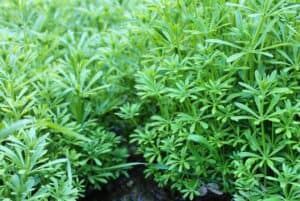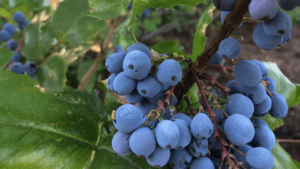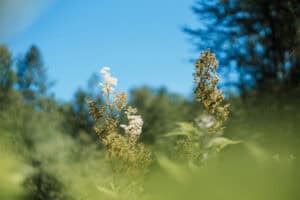Science and spirituality are often painted as opposing forces. When this philosophy makes it into herbalism, you get a big divide between herbalists.
Depending on their perspective, herbalists will typically choose a scientific or spiritual approach to healing. The problem with picking a side is that you only get one half of the picture. By seeing the unity of science and spirit and the importance of each, you can become a truly holistic healer.
In today’s blog post, you’ll learn:
- The key to transformational healing through embracing the science and spirit in herbalism
- That plants possess consciousness and work beyond physical symptoms to address the heart, mind, and spirit
- Why science isn’t always able to explain how herbs work
- How sickness is a complex interplay of physical and spiritual imbalances
- Ways plant intelligence influences its biochemical makeup
- About spagyrics, a spiritual herbal pharmacy that concentrates the scientific and spiritual properties of herbs
- The Evolutionary Herbalism model for integrating science and spirit for holistic healing
Table of Contents
As I ventured into the world of herbalism, I found myself caught in a captivating dance between science and spirituality—a kind of tug-of-war that shaped my journey as an herbalist.
I’ve encountered so many remarkable herbalists who adhere exclusively to spiritual methodologies and primarily focus on nurturing spiritual well-being. Conversely, I’ve crossed paths with numerous adept herbalists who approach their craft solely through the lens of science. Both herbalists see impressive and profound healing results.
Over the years, I’ve noticed this interesting pattern of taking sides. Some folks are all about science, needing solid explanations for everything, and they tend to steer clear whenever things get a bit “woo-woo.” On the other end of the spectrum, you’ve got people deeply connected to spirituality and criticizing the scientific model, calling it too analytical and reductive.
This whole division left me feeling caught in the middle. It seemed like everyone was picking their side, and I felt this pressure to do the same. But that just didn’t sit right with me. My journey into herbalism was sparked by my connection to nature, the enchantment of plants, the allure of forests, and the wisdom they hold. Simultaneously, the study of herbal sciences, chemistry, and how plants work on a molecular level was equally important to me. I wrestled with this inner tug-of-war for a while before it dawned on me: I didn’t need to choose a side. Only then did I start to feel at peace.
Things took a real turn when I stumbled upon the alchemical tradition. Alchemy showed me that science and spirituality aren’t at conflict. In fact, I’d go so far as to say that viewing them as separate is an illusion. Science and spirituality are two sides of the same leaf. In other words, science and spirituality are two different ways of looking at the same thing. Science peels back the layers of the physical and tangible aspects of herbal medicine, while spirituality illuminates the hidden properties.
Learning to see the value and wisdom embedded in both of these perspectives is fundamental to developing a holistic viewpoint. By studying how science and spirituality connect, you unearth a profound understanding of how to work with people and plants to achieve transformational healing.

Beyond the Body
There’s a part of you that’s bigger than just your body. You can call it many things—your spirit, soul, or anything else. The terms spirit and soul are used in a specific way in alchemy, but in this context, we’re referring to the simple essence that makes you, you.
Your essence is not limited to your physical body or even your thoughts. When you cease to think or feel, you still continue to exist. The consciousness of your spirit surpasses thought, emotion, and even the body. Like air, it simply exists. You can hold your breath, take a deep gulp, or deny its existence, but the air continues to exist.
This consciousness is in all living things—and plants are no exception. Plants aren’t limited to their physical body (stems, leaves, flowers) and biochemical constituents. They possess something greater that science can’t necessarily pinpoint in a lab. Plants have intelligence, awareness, and consciousness. Science has proven that plants are aware of their surroundings. And although they don’t have eyes and fingers, they are aware of light, sensitive to aromatic compounds, and sense when touching a physical item in space. I view this intelligence and consciousness as spiritual qualities.
Learning this completely changed how I approach working with plants. If you don’t believe plants have sentience, you might chop down a tree or roughly pull herbs from the ground without a second thought. But from a spiritual perspective, these approaches are disrespectful to sentient beings with intelligence and consciousness. When you can see the spirituality in plants, you harvest and prepare them with respect, honor, and gratitude.
Recognizing the spiritual essence in plants means understanding that their effects don’t just work on the body, but on your emotional, mental, and even spiritual being. I’ve seen herbs help people break free from toxic patterns, process unresolved traumas, and more. This is possible because the spirit of herbs restores balance to your own spirit, recalibrating you to a greater state of wholeness.
When we explore herbal traditions across different cultures, the common thread is this: plants don’t just work on our physical well-being, but impact our spiritual selves on a profound and transformative level.

Embracing the Unexplainable
In the world of science, something is considered valid when it can be proven using scientific methods. But I’ve had experiences that can’t be explained by science. It’s important to remain open-minded and realize that the relationship between science and spirituality is bigger than we may realize. While we can use science to study plants, their chemistry, and their mechanisms of action, there comes a point where we can’t fully understand how an herb works through science alone.
Even though science is just one part of the puzzle, it’s still important to value the contributions it’s made for the herbalism community. Because of our scientific knowledge of herbs, we can study them in a much deeper way than ever before. We can ensure herb-drug safety and potential contraindications, which can increase the safety and efficacy of your practice. While science can tell us about the parts of a plant and how they work, there’s a spiritual side that can help us understand herbs in ways that science can’t.
Let’s think about Lavender (Lavender angustifolia) for a moment. If we only look at it from a scientific viewpoint, we find out that it contains volatile oils that help with digestion. But when you take Lavender, lots of different things can happen in your body because of the way that your constitution interacts with the energetics of the herb. Ultimately, this leads to endless potential outcomes which science can’t predict.
Herbs possess a vast intelligence in the way they work that goes beyond what we can understand through science. By having reverence for the spirituality in plants, we can learn to appreciate both the scientific facts and the hidden spirit of plant medicine.
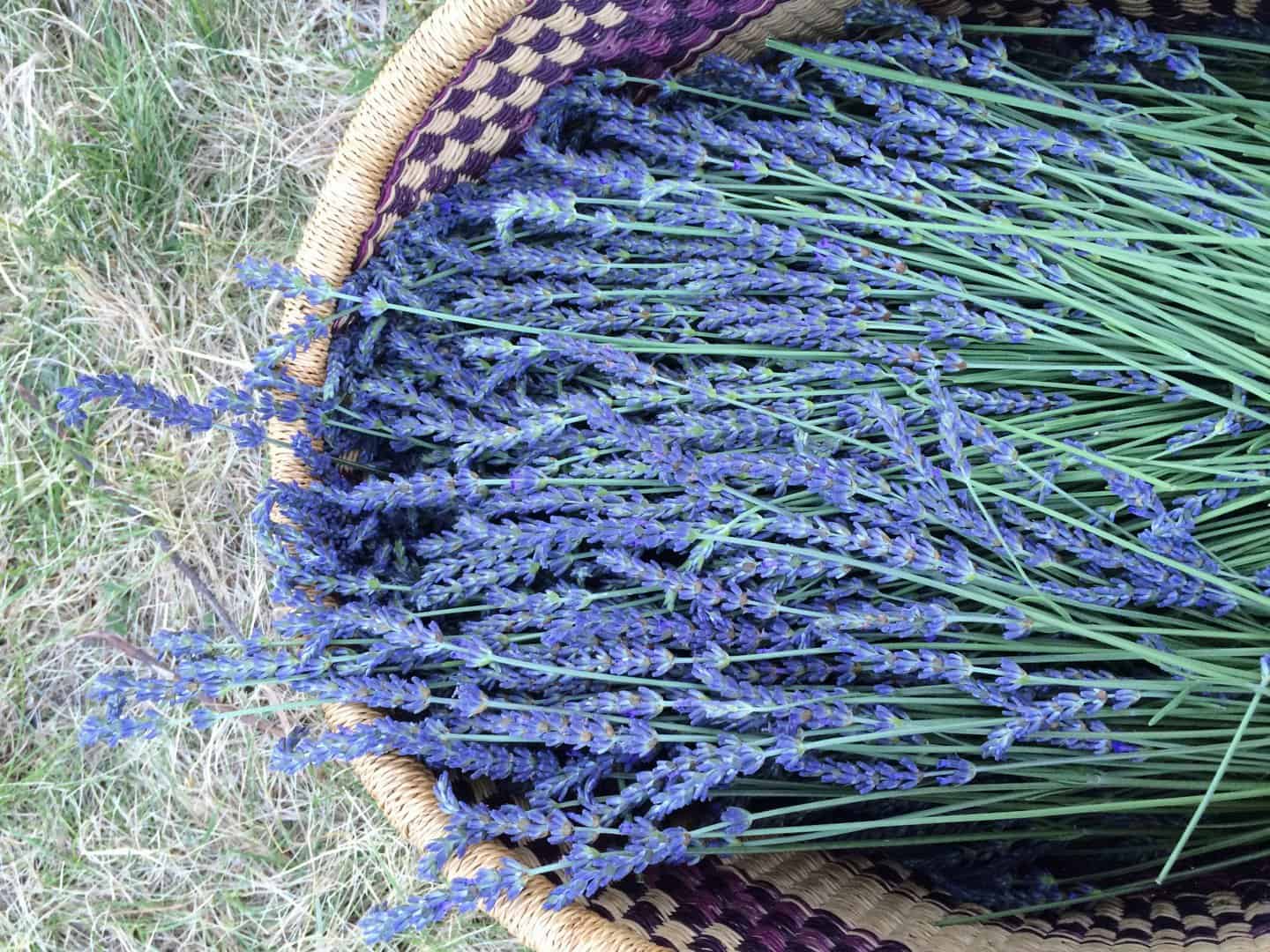
Physical and Spiritual Origins of Sickness
What is sickness, really? From the scientific perspective, sickness happens when there’s a molecular or biochemical imbalance in the body. From a spiritual lens, it happens when there is a spiritual imbalance, such as unresolved trauma leading to physical manifestations. I say both are true. Disease can start on a physical or spiritual level.
Let’s use the example of trauma to explore this concept further. Trauma affects your perception and consciousness. It trickles into your dreams, sleep, and thought processes. It can also lead to flashbacks and panic attacks. I see those as spiritual symptoms of trauma.
As time goes by, its impact on your psychological and emotional health can lead to physiological changes. For example, long-term stress leads to high cortisol, which suppresses your immune system. Over time, this damages your physical health.
On the other end, you can see that it’s also possible for physical health issues to lead to spiritual ones. Take food intolerances, for example. If you’re intolerant to gluten or dairy, eating these foods cause a systemic inflammatory response in your body. Feelings of anxiety, frustration, and depression can all emerge when you consume a food that your body can’t tolerate. While these emotions have a basis in your body’s workings, it’s the underlying physical imbalance that gives rise to psychological distress.
Physical imbalances can trigger spiritual imbalances, and the reverse is also true. This occurs because your body and spirit are interconnected. An aspect I love about the alchemical tradition is how it acknowledges the interconnectedness of the physical body, spirit, and soul. When one of these aspects suffers, the others are affected too. Likewise, when one heals, the rest also do.
In our society, we often draw distinct boundaries between scientific understanding and spiritual matters, yet these divisions aren’t truly rigid. You can visualize it as a spectrum within a rainbow. Just as the colors blend seamlessly into each other, the different facets of yourself meld together to form a unified whole.
If you’re following the scientific method, you might hesitate to assist people dealing with spiritual imbalances. Similarly, if your usual focus is on spiritual well-being, you might not feel confident aiding someone with a physical ailment. Looking at things from a complete perspective, you’ll realize that no matter your approach, you’re affecting the person as a whole.
In the Evolutionary Herbalism approach, our aim is to view a person and their healing journey in a comprehensive way. This entails pinpointing the underlying cause of their issue. Is someone’s illness stemming from a physical imbalance? In that case, you can employ techniques and tactics to address the physical aspect. Yet, if it originates from a spiritual, mental, or emotional imbalance, you can devise a plan to provide support on that level as well. By embracing the principles of alchemical herbalism, you acquire the skill to meld these two facets together for all-encompassing healing.
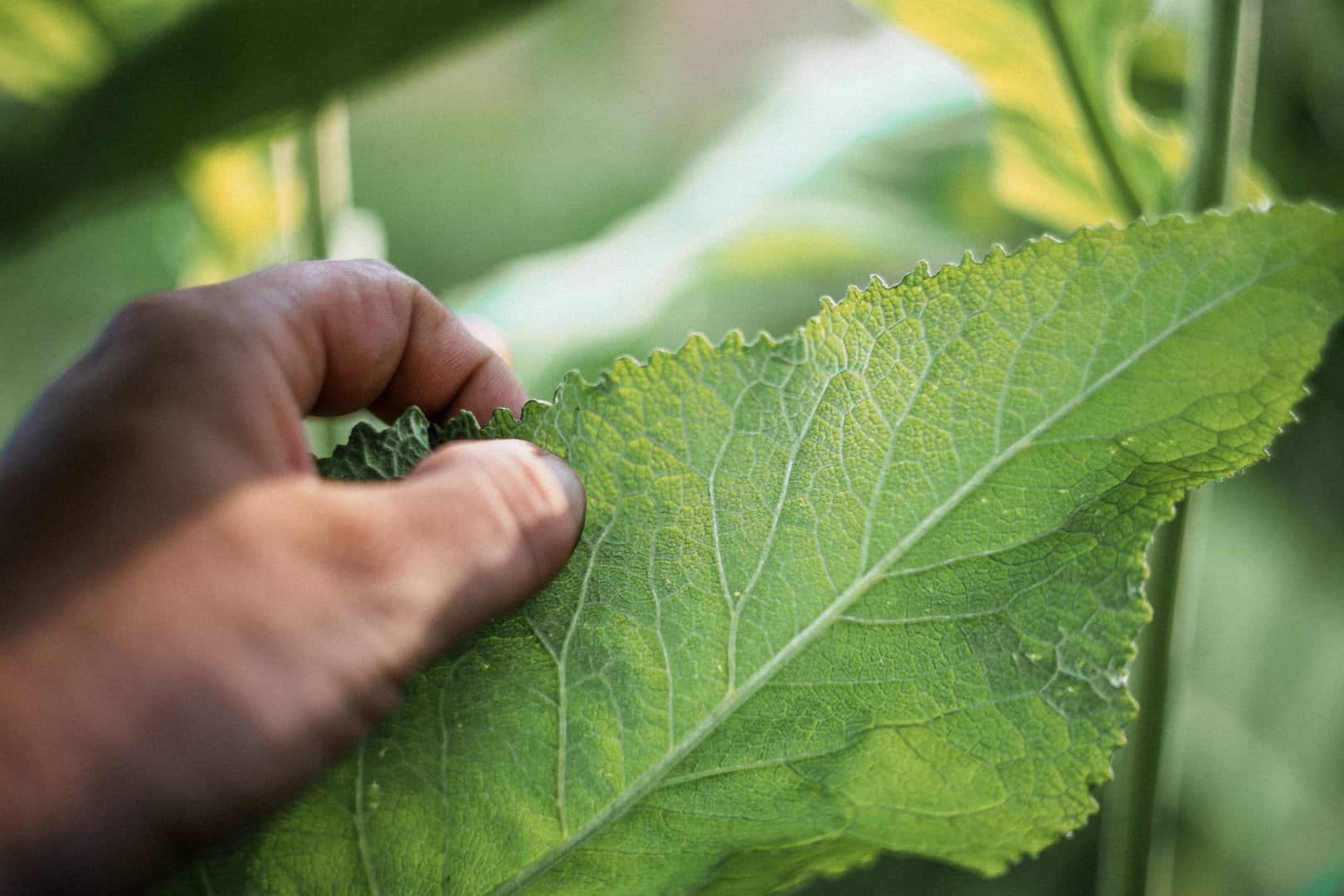
Conscious Chemistry
We’ve been exploring the fascinating relationship between the body and spirit and how they influence each other. But this dynamic isn’t limited to humans alone. It extends to the world of plants too.
Plants possess remarkable intelligence and respond to the environment they inhabit. Imagine a herb growing freely in its native environment facing a host of challenges, such as pests, unpredictable weather, temperature changes, crowded spaces, and dry periods.
In the face of these hardships, the wild plant emerges strong and develops a robust immune system. Consequently, the medicinal power of such wild plants surpasses that of their cultivated counterparts, which are carefully nurtured and shielded from struggles. Here, we witness the intricate dance between a plant’s biochemistry and its spiritual consciousness, guided by an innate awareness of its physical surroundings.
Something worth noting is that although wild plants yield stronger medicine, there are times when cultivating plants is preferred, such as with endangered plants. Although they may not produce as strong of a medicine, it’s important to honor the cycles of nature and allow plants in the wild to be replenished.
When you work with plants, there’s a chemical reaction that happens in your physical body. However, there’s another reaction at play—one where the plant consciousness interacts with yours. This explains why herbs can bring up different (and sometimes surprising) emotions, thoughts, and memories. They can also help you tap into dreaming of a different life for yourself; one defined by the pursuit of healing, not just the avoidance of pain. I find this especially true when working with alchemically prepared medicines since these remedies concentrate the spiritual properties of an herb along with its biochemical ones.
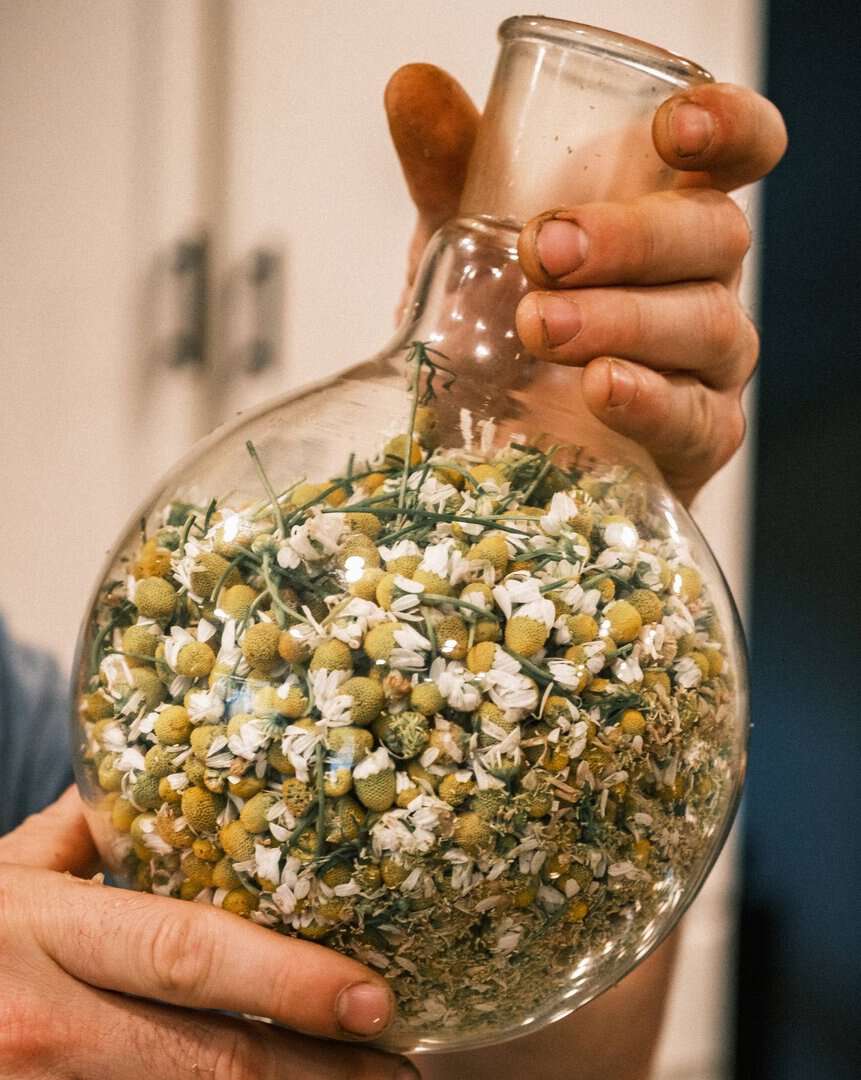
Scientific and Spiritual Pharmacy
The last aspect to consider when uniting the science and spirituality of herbalism is your pharmacy. How do you prepare and craft herbal medicine?
Herbalists who focus on the scientific side use physically active medicines, such as standardized extracts, tinctures, infusions, salves, infused oils, and other preparations that act on the physical body. Spiritual practitioners focus on energetic remedies, such as flower essences and homeopathics. These remedies contain molecules in parts per million or billion, and despite not being scientifically explained, are demonstrated to be effective in the short and long term.
My favorite form of herbal medicine is spagyrics. Spagyric herbal pharmacy is so powerful because it’s a method of crafting herbal medicine that directly honors the science and spirit within plants. Through a highly refined process, spagyrics extract, preserve, and concentrate the biochemical constituents of a plant alongside its esoteric properties.
Preparing a spagyric herbal medicine involves following a highly nuanced extraction technique that focuses on preparing the remedy when the herb is most potent. This requires following exact timing and schedules for harvesting and preparing the spagyric. The steps of making spagyrics are many, but the main concept is that you are separating a plant’s chemical properties (Salt), energetic properties (Mercury), and spiritual properties (Sulfur). After separating them, you purify each and recombine them to yield a potent full-spectrum medicine that influences your body, spirit, and soul.
I always say that if you want to be a holistic herbalist, it’s not enough to understand a person or a plant holistically. You also need to use a remedy that has been prepared holistically. Through unifying the spiritual and scientific properties of a plant, spagyrics work on the wholeness of the person by incorporating the wholeness of the plant. This holistic medicine is the perfect medium for herbalists who seek to practice in a truly holistic manner.
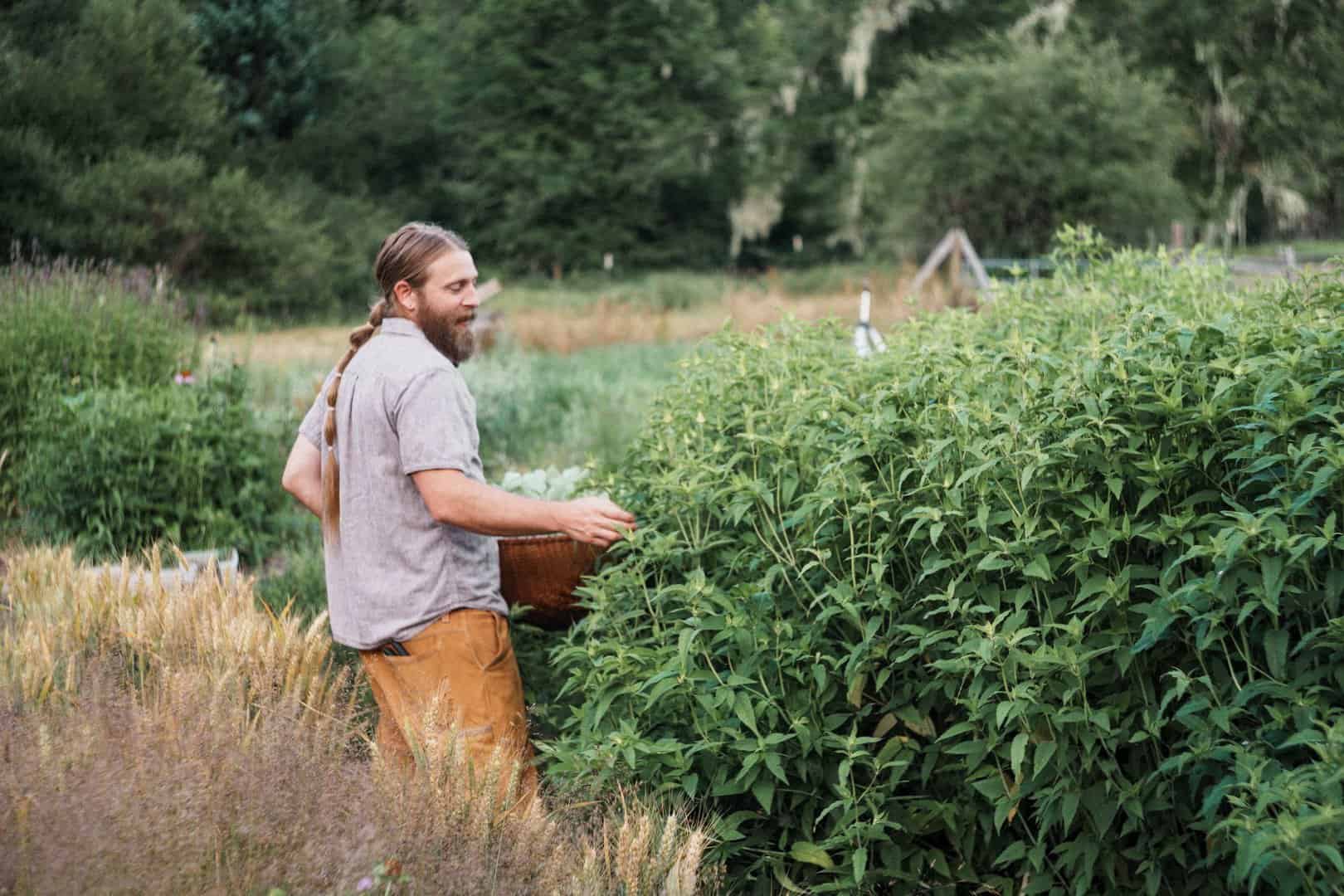
Evolutionary Healing
In the Evolutionary Herbalism model, our approach to the study of herbal medicine, people, and plants involves a conscious effort to strike a harmonious balance between the realms of science and spirit. By delving into the intricacies of herbal chemistry, actions, and techniques for optimal extraction, in tandem with exploring the herb’s spiritual attributes rooted in tradition and clinical experience, you gain the expertise to harness the full spectrum of healing offered by herbs.
When working with individuals, a comprehensive analysis incorporates their anatomy, physiology, and pathology. After that, it’s time to integrate these facets with traditional energetic systems such as Ayurveda and Traditional Chinese Medicine (TCM). Additionally, I incorporate astrological systems into our program to understand the underlying patterns within a person and how they interact in health and disease.
The fusion of science and spirituality is essential for a holistic approach to herbalism. By learning to see the value and unity in both, you develop and progress your practice in a way that honors tradition, modern science, spirituality, the self, and the power beyond.
Many people today are suffering from spiritual sickness because of our separation from nature. Medicinal plants possess the consciousness needed to reconnect you with the earth. Through their essence, they assist in clarifying your mind and supporting your soul’s evolutionary development.
Recognizing the consciousness and intelligence of plants means embracing the mysteries that extend beyond scientific understanding. By learning to see the science and spirituality of herbal medicine as complementary rather than contradictory, you can develop a profound and comprehensive approach to healing that supports someone’s physical well-being and spiritual evolution.


